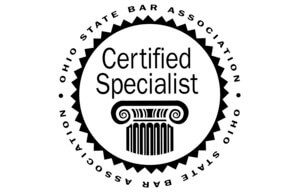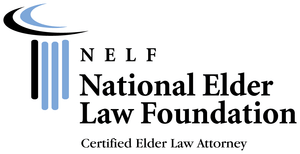V.A. Aid and Attendance Benefits
/All of the Attorneys at Daniel P. Seink Company are accredited by The Department of Veterans Affairs to prepare, present and prosecute claims for veteran’s benefits before the Department of Veterans Affairs (VA).
Proposed rule change updates 2013-2017 - Update January 2013: The Department of Veteran Affairs has proposed comprehensive changes to the pension program, which includes instituting a three year look back period on transfers. See Federal Registrar. The proposed rule changes are subject to a public comment period, many of such comments questioning the authority of the VA to make the changes without an affirmative act of Congress. Update May 2013: Congress has proposed instituting a look back period on transfers for purposes of the Pension benefits discussed below. See S. 748 here. Update January 2015: Congress has failed to pass several similar bills, and none are currently on the verge of passage, although eventual passage of some form of look back period in the next year or two is deemed likely. Update November 2016: Having failed to get Congress to grant it broad rule-making powers, the Department of Veterans Affairs has stated it will promulgate some version of the rule changes originally proposed in January 2013, on or after April 2017, and more recently, ‘later this Summer’. However, the Department has refused to indicate whether there will be any changes to the proposals following the public comment period. Rules have changed in the Code of Federal Regulations effective October 18, 2018.
Many qualified Ohio veterans are not aware of medical, compensation and/or pension benefits to which they are entitled. Surviving spouses and dependents of deceased veterans in Ohio may also be eligible for benefits. Of particular importance to those individuals faced with the costs of long-term care, veteran benefits may be available to provide home care, and/or help pay for home care, assisted living care, and nursing home care under the Aid and Attendance Pension. Read below for more information on these important benefits, including the Examples.
Eligibility for most veteran benefits is based upon discharge from active duty under other than dishonorable conditions.
Health care benefits may be available, but are subject to funding limitations set by Congress, meaning not all veterans will receive health benefits through the VA. Eligibility is based on priority groups: veterans with service connected disabilities have the highest priority, followed by those with special care requirements and limited resources. Health care benefit programs include prescription benefits, hospital care, outpatient care, emergency care in VA and non-VA facilities, comprehensive rehabilitative services, home health services, respite care, geriatric and extended care, mental health services and dental care. In fact, our Firm has many clients who have received forty or more hours per week of ongoing home care services provided through the Home and Community Based Care Program of the VA Healthcare System of Ohio.
Burial benefits may also be available and include a burial expense allowance up to $828, a plot or internment allowance up to $828, burial in a national cemetary, free headstone or grave marker or reimbursement for privately purchased headstone or marker, payment for conveying remains and burial flag.
A popular veteran benefit is the home loan guaranty benefit. This program is designed to help a veteran purchase his or her home on terms more favorable than those of conventional mortgage loans by providing a VA guarantee for the lender against the veteran's default. As a result of the guarantee, the lender is likely to provide better mortgage terms, such as no downpayment and lower interest rates. Generally, veterans who served at least 90 days with one day falling within WWII, the Korean Conflict, or the Vietnam Era, and who were discharged under other than dishonorable conditions, will be eligible.
Other available benefits may include education benefits; automobile, conveyances and adaptive equipment; clothing allowance; and specially adapted housing and home adaptation grants.
Compensation benefits are available to those discharged or released under honorable conditions, and where disease or injury was incurred or aggravated in the line of duty. Compensation rates for a single veteran with no dependents in 2022 run between $152.64 per month (10% disabling) to $3,332.06 per month (100% disabling).
Pension benefits are afforded qualifying veterans, spouses and dependents, who meet a means (financial needs) test. The qualifying veteran must be permanently disabled or over the age of 65, must have served at least 90 days of active service with at least one day during wartime, and must have been discharged other than dishonorably. If qualified, then the benefit is determined in part by deducting countable income from the maximum annual pension rate (MAPR) determined by Congress. The current MAPR for a veteran without dependent is $14,753. This amount increases with the number of dependents. The VA will also consider, on a case by case basis, the individual's net worth in light of the persons life expectancy and potential rate of depletion of the assets, including unusual medical expenses.
Special Monthly Pensions, available when qualifying persons have extraordinary disability, are largely under-utilized by qualifying veterans and spouses of deceased veterans in Ohio. Those who are housebound or in need of the regular aid and attendance of another person may be entitled to receive a higher pension amount (up to $2,050 per month for a single veteran with no dependents, $2,431 for a veteran with a spouse, and $1,318 for a qualified spouse of a deceased wartime veteran for those who qualify for Aid and Attendance in 2022). Moreover, the costs being incurred for the individual (home care, assisted living care, nursing home care) can be used to offset the countable income.
Example One: A qualified Ohio veteran with $40,000 in assets and $1,500 in fixed income per month who is subject to a monthly assisted living expense of $3,750 will run out of money in 17 months, most likely requiring him or her to be admitted to a nursing home and apply for Medicaid. However, because the individual's assisted living cost exceeds the monthly income, he or she will be entitled to the full monthly Aid and Attendance benefit. As a result, the veteran will have sufficient income and resources to stay in the care setting of choice for over 16 years.
Example Two: A spouse of a deceased Ohio veteran with $150,000 in assets and $1,500 in fixed income per month who is subject to a monthly assisted living expense of $3,750 will run out of money in 5 years and 5 months. However, once she has reduced her assets on the care cost below $138,489 (about 5 months), she becomes asset eligible for the Aid and Attendance benefit. By reason of this Pension benefit, she will now have sufficient resources to stay at the assisted living facility for a total of 12 years and 4 months.
Example Three: The individual in Example Two, instead of spending down the assets to below $138,489 over 5 months before becoming eligible for the Aid and Attendance benefit, instead converts $15,000 into an immediate lifetime annuity paying her $180 each month. She is asset eligible to begin receiving the Aid and Attendance benefit immediately, and because her assisted living cost exceeds the monthly income (including the annuity payment), she should be entitled to the full monthly benefit. As a consequence of her planning, she would expect to have sufficient resources to stay at the assisted living facility for and even longer period. However, due to the imposition of new rules effective in October 2018, the purchase of the annuity will be treated as a gift, resulting in a penalty of six months, resulting in a loss of one month of benefits, rather than accelerating her eligibility.
Example Four: The individual in Example Two is advised by a friend to give away the “excess” assets in order to try to obtain the Aid and Attendance benefit immediately. However, due to the imposition of new rules effective in October 2018, the transfer resulted in a penalty period. Furthermore, because her condition worsens over the next two years she requires nursing home care, which costs $7,000 per month. Even with the Aid and Attendance benefit, she runs out of money quickly. She applies for Medicaid but is told she is ineligible for Medicaid because of her gift of $11,511 to her son. She asks her son for the money back but discovers it is no longer available because of her son’s divorce and foreclosure on their home.
Veterans, and spouses and dependents of veterans should seek independent counsel from experienced elder law attorneys to help evaluate and educate regarding their possible entitlements to veteran benefits in coordination with all other public benefit programs (such as SSI, SSDI, Medicare and Medicaid) and other options when planning for the future or addressing current crises.
CAUTION: Never seek the advice or assistance of an individual regarding veteran benefits unless you have first verified that they are an accredited agent or attorney! You can verify accredited status by clicking here. Only accredited attorneys, agents, or accredited representatives of veterans services organizations may assist veterans in the preparation, presentation, and prosecution of claims for VA benefits. The Office of The General Counsel for the Dept of Veteran Affairs has written that a non-accredited individual may not render advice regarding eligibility for pension benefits, even though the individual does not participate in the filing of a claim, because giving advice is tantamount to the preparation of a claim: "This is because the advice is given in regards to a specific application for benefits rather than general advice not related to a specific claim. The difference is significant in that the purpose of VA’s accreditation program is to ensure that claimants for veteran benefits receive qualified assistance in preparing and presenting their claims."
Unfortunately, non-accredited persons, or organizations with official sounding names (but no accredited agent employees or service organization status), are actively seeking veterans to work with them in conjunction with obtaining veteran benefits. As outlined in one of our Case Studies and some of our past blogs, these individuals frequently take advantage of the veteran or their family in order to generate commissions for themselves, often with disastrous consequences. Clearly, someone willing to violate federal law should not be entrusted with the care coordination of a veteran or his or her life savings!





